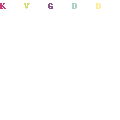Very Little Evidence Supports the Cooldown after training
You’re one of the loyalistst who squeeze in some training miles on their lunchbreak. Or you’re one of the 6am faithful at the the local box. Every part of your abbreviated warmup and frenzied post-training shower is calculated to give you maximal training time. So are you cheating your recovery by not doing a cooldown? We don’t think so. We’ve never thought so, in fact. Now it appears that the there’s a bunch of science to support this notion.
Recovery is an expansive word, and in the case of exercise, it can be used to mean mental recovery, Central Nervous System recovery, the recovery of muscular force, a reduction in soreness (Delayed Onset Muscle Soreness, or DOMS), or even the recovery of another performance variable.
A 2007 study performed on 52 healthy adults (23 men and 29 women aged 17 to 40 years) at the University of Sydney, in Australia, determined that while recovery can be slightly enhanced with a proper warmup, the cooldown contributed nothing to a reduction in muscle soreness.
 The warmup, however, is useful for other reasons (preventing injury, increasing performance, etc…).
The warmup, however, is useful for other reasons (preventing injury, increasing performance, etc…).
In a 2012 study, 36 active subjects performed weighted barbell lunges while holding barbells…some of the volunteers warmed up, others didn’t warm up but cooled down, and some did neither, just the lunges. After a day, the warmup group was the most pain free, while the cooldown group had results similar to the control group (who did not warmup or cooldown).
Another 2012 study, performed on 31 professional soccer players in Spain, examined the difference between sitting on a bench for 20 minutes versus a cooldown of light running and stretching. The results showed that there were differences in recovery in terms of heart rate, muscle tension, perceived muscle soreness.
As with many other recovery modalities, there’s probably never going to be a “final” word that represents the unchallenged/ultimate way to recover. But the evidence against the cooldown is substantial enough that we’re probably still going to leave it out of our own training.
Science stuff:
Warm-up reduces delayed-onset muscle soreness but cooldown does not



